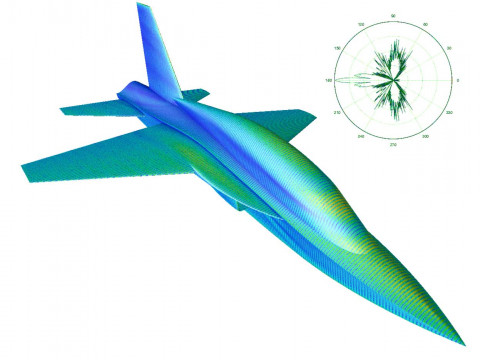ESI consolidates its offer in Computational Electromagnetics with CEM Solutions 2013
ESI Group, pioneer and world-leading solution provider in Virtual Prototyping for manufacturing industries, announces the launch of CEM Solutions 2013. A fully-integrated solution to address all aspects of Computational Electromagnetics (CEM) within a unified GUI environment, CEM Solutions 2013 is dedicated to all engineers involved in the safe electromagnetic design of products.
The increasing number of electronic systems and subsystems in everyday products, from cars to aircrafts and home appliances, generate an increased complexity with regards to electromagnetic compatibility. Moreover, manufacturers are required to comply with certain international Electromagnetic Compatibility (EMC) regulations. While striving to save time and to control costs, manufacturers have identified the importance of addressing compatibility issues and comply with EMC standards as early as possible in the design process – something that can easily be done by implementing the right simulation solutions, allowing for an early assessment of design models.
This is exactly what ESI offers with its new software suite CEM Solutions 2013, a complete and coherent solution for Computational Electromagnetics that integrates the main computational techniques, while promoting coupling and hybrid techniques to handle fully realistic Virtual Prototypes. The solution has been particularly tailored for EMC experts (internal cabling & electronic equipment) in all industries, active safety (RADAR devices) and infotainment engineers in the automotive industry, and stealth design engineers in the aeronautics and defense sectors.
The solution includes PAM-CEM Simulation Suite, ESI’s advanced 3D explicit software, allowing the fast investigation of electromagnetic phenomena and developed from the widely used Finite-Difference Time-Domain method. Its simulation capabilities range from Electromagnetic Compatibility (EMC) to Electromagnetic Interference (EMI), Electromagnetic Radiation (EMR) and Electromagnetic Susceptibility (EMS) of electronic systems or products. PAM-CEM offers unique coupling capabilities, allowing multi-scale electromagnetic phenomena assessment in the middle and high frequency ranges.
CEM Solutions 2013 also includes Efield Solutions, a unified modeling environment for time and frequency domains, that supports antenna design and integration (within automotive vehicles, aircraft or marine ships), microwave design, RADAR signature of military vehicles and ships, stealth, hardening and shielding.
Dr. Adam Zdunek, Head of the Aeronautic Vehicle Stealth Group at FOI (Swedish Defense Agency), comments on the benefits of using ESI’s Virtual Product Engineering solutions to eliminate design errors early in the process: “We have obtained very good results according to the post-test validations we have made on prototypes. These show that using calculation tools instead of conducting extensive experiments works extremely well in many cases.” Dr Zdunek continues, “We use two types of calculations for invisibility: one on improving existing vehicles and one on new constructions. Efield can take into account the way that radar signals bounce and interact with other parts. The actions taken are aimed at eliminating any reflected signals.”
The new CEM Solutions 2013 has been enriched with key improvements for aerospace and defense applications, such as a very significant CPU time decrease through MLFMM (Multi Level Fast Multipole Method) parallelization of large scale applications, such as RADAR signature and antenna coupling. The new version also introduces enhanced modeling of antenna arrays for aeronautics, meshless formalism for high frequency, and advanced modeling for shielded and over shielded cables.
ESI envisions future developments for stealth, related to thin plastic coatings and radar absorbing materials. Major upcoming features for automotive will focus on radio noise from electronic equipment, and hybrid solutions for Long Radar Range (LRR) in Active Safety.
For more information about CEM Solutions 2013, please visit our Electromagnetics pages.
